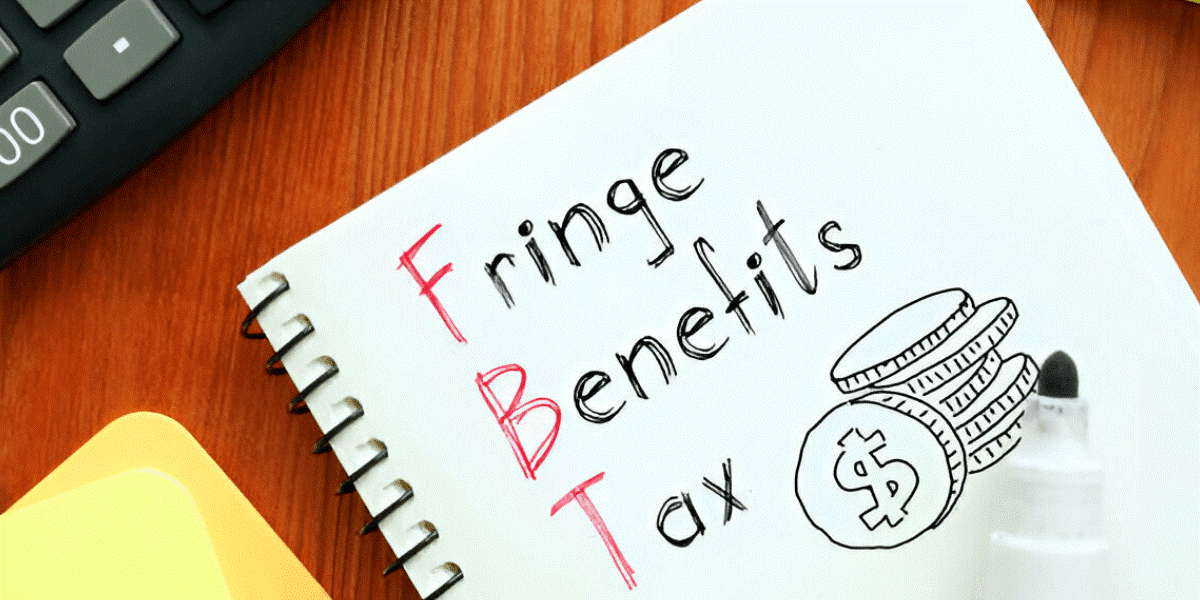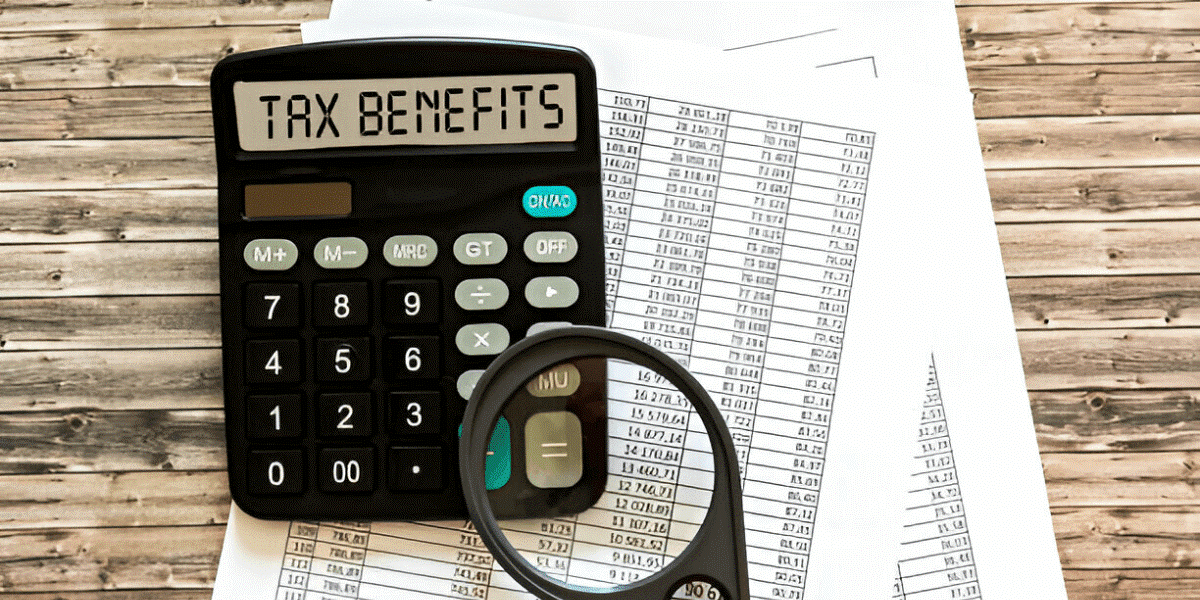Table of Contents
1. What Is EOFY?
2. End of Financial Year Prep: 16 Key Steps to Take
3. Key Financial Practices to Maintain Throughout the Year
4. FAQs
5. Conclusion
6. Prepare Yourself For This EOFY with Tax App
7. Why choose Tax App?

16 Steps To Prepare Yourself For This End Of Financial Year (EOFY)
Are you ready to tackle the end of the financial year with confidence and ease as the calendar hits 30th June? As the EOFY approaches, it's more important than ever for Australians to get their finances in order and make informed, strategic decisions to optimise their tax position and enhance their overall financial health.
Instead of dreading this period, imagine feeling empowered and prepared, ready to navigate the complexities of tax season with a clear plan and a confident mindset.
This comprehensive guide will walk you through ten essential steps to prepare yourself for the EOFY, transforming what can often be a stressful time into an opportunity for financial growth and clarity.
Let's dive in and discover how you can streamline your EOFY preparations, make the most of tax-saving opportunities, and set yourself up for a prosperous new financial year.
By the end of this guide, you'll have a clear roadmap to follow, allowing you to face the EOFY with confidence and clarity and make this year's financial wrap-up your most successful yet.
What Is EOFY?
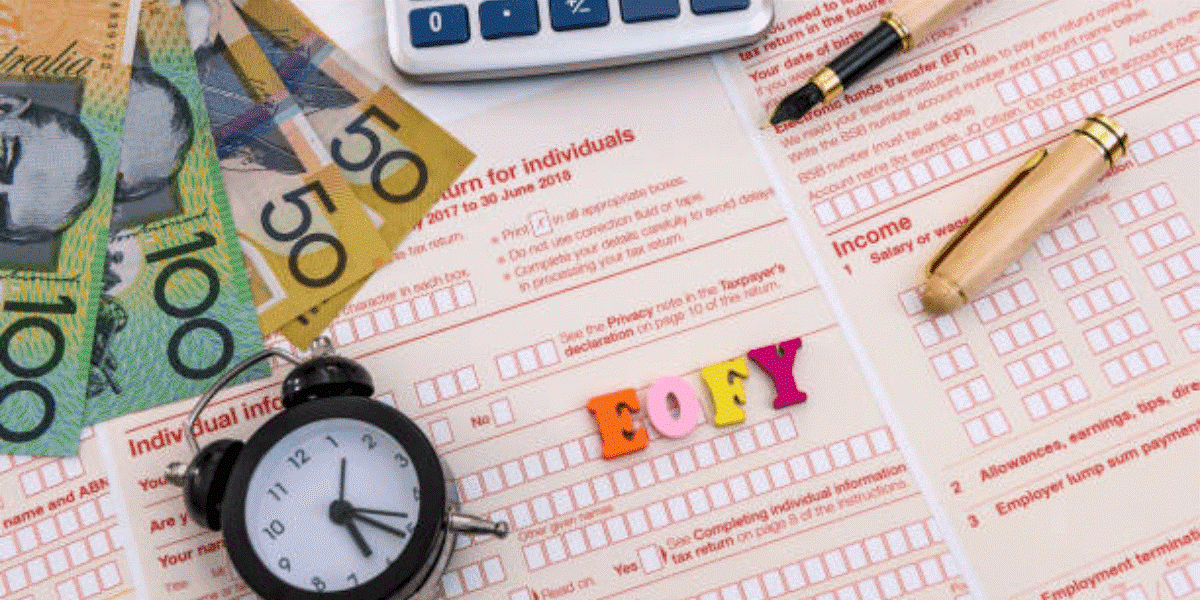
End of Financial Year Prep: 16 Key Steps to Take
1. Organise Your Records
Start by organising your financial documents, such as receipts, invoices, and statements. Invest in a filing system or digital tools to categorise and store paperwork efficiently. By streamlining your paperwork organisation, you'll save time and reduce stress when it comes to preparing your tax return.
2. Supplementary Income Opportunities
Explore avenues for generating supplementary income, such as freelance work, rental properties, or investment dividends. Diversifying your income streams can provide additional financial security and growth opportunities, especially during uncertain economic times.
3. Future-Proof Your Financial Plan
Review your long-term financial goals and assess whether your current plan aligns with your objectives. Consider factors such as retirement savings, investment strategies, and risk management to ensure your financial plan is robust and adaptable to changing circumstances.
4. Strategic Superannuation Contributions
Maximise your superannuation contributions before the EOFY deadline to benefit from potential tax advantages and boost your retirement savings. Explore concessional and non-concessional contribution options to optimise your superannuation strategy based on your circumstances.
5. Utilise Technology for Financial Tracking and Management
Harness the power of technology to track your expenses, monitor your budget, and manage your investments effectively. Mobile apps, budgeting software, and investment platforms offer convenient tools to help you stay on top of your finances and make informed decisions.
6. Navigate EOFY Sales with Caution
Exercise caution when participating in end-of-financial-year sales to avoid overspending or making impulse purchases. Evaluate your purchasing needs carefully and prioritise items that offer genuine value or align with your long-term financial goals.
7. Stay Updated on Important Deadlines
Stay informed about key EOFY deadlines, including tax return lodgement dates, superannuation contribution cut-off times, and financial reporting requirements. Mark important dates in your calendar and set reminders to ensure timely compliance with regulatory obligations.
8. Capitalise on Working from Home Tax Breaks
If you've been working from home due to the pandemic, explore potential tax deductions available for home office expenses, including utilities, internet bills, and depreciation on home office equipment. Familiarise yourself with the eligibility criteria and documentation requirements to claim these deductions effectively.
9. Assess and Enhance Health Insurance Plans
Evaluate your existing health insurance coverage to ensure it meets your needs and provides sufficient protection for you and your family. Assess factors such as premiums, coverage limits, and out-of-pocket expenses to determine if adjustments are necessary. Consider upgrading your plan or switching providers if you find a better value or more comprehensive coverage elsewhere.
10. Optimise Deductions for Maximum Savings
Take advantage of available deductions to minimise your taxable income and maximise your savings. Explore deductions for expenses such as charitable contributions, home office expenses, education expenses, and investment-related costs. Keep detailed records and receipts to substantiate your deductions and ensure compliance with tax regulations.
11. Consider Charitable Contributions for Tax Benefits
Explore opportunities to make charitable contributions to eligible organisations and causes. Not only does giving back benefit your community, but it can also provide valuable tax benefits through deductions for your donations. Research eligible charities and consider establishing a structured giving plan to align with your values and financial goals.
12. Implement Tax-Saving Strategies
Work with a tax professional or financial advisor to implement tax-saving strategies tailored to your circumstances. Explore techniques such as income splitting, tax-deferred investments, and capital gains planning to minimise your tax liabilities and maximise your after-tax returns. Keep updated on changes to tax laws and regulations so you can adjust your strategies accordingly.
13. Prepare for Changes in Tax Legislation
Stay abreast of changes in tax legislation that may impact your financial situation. Monitor proposed tax reforms and government agency updates to understand how tax law changes could affect your tax planning strategies, investment decisions, and overall financial outlook. Consult with a tax advisor to assess the implications of any new tax laws and take proactive steps to mitigate risks or capitalise on opportunities.
14. Consult with Expert Financial Advisors
Seek guidance from qualified financial advisors or wealth managers to steer complex financial decisions and optimise your overall financial strategy. A professional advisor can provide personalised advice, tailored investment solutions, and strategic planning recommendations to help you achieve your short-term and long-term financial objectives. Collaborate with an advisor who understands your unique needs and priorities and can offer holistic financial guidance.
15. Evaluate Debt Management and Reduction Techniques
Assess your existing debt obligations and explore strategies for managing and reducing your debt burden effectively. Consider options such as debt consolidation, refinancing, or accelerated repayment plans to lower interest costs, improve cash flow, and achieve financial freedom sooner. Develop a debt repayment strategy that aligns with your budget and long-term financial goals.
16. Plan Ahead
Take a proactive approach to financial planning by setting realistic goals, creating a budget, and establishing a savings plan. Anticipate future expenses, such as major purchases, education costs, or retirement needs, and allocate resources accordingly. By planning ahead and taking proactive steps to address your financial priorities, you can build a solid foundation for financial security and success.
Key Financial Practices to Maintain Throughout the Year
Keeping Detailed Account Records
Maintaining these detailed account records ensures a smoother and more efficient EOFY process, positioning your business for continued financial health and success.
1. Bank Statements/Reconciliation:
Review and reconcile your bank statements regularly to ensure all transactions are accurate. This practice helps identify discrepancies or unauthorised transactions early, maintaining the integrity of your financial records.
2. Loan/Financial Agreement Statements:
Keep copies of all loan and financial agreement statements. Regularly reviewing these documents ensures you’re aware of your repayment schedules, interest rates, and any changes to your agreements.
3. Business Credit Card Statements:
Monitor your business credit card statements closely to manage your spending and catch any unauthorised charges. Proper management of these statements is crucial for budgeting and financial planning.
4. Purchase Invoices:
Maintain organised records of all purchase invoices. These documents are essential for tracking your business expenses, managing inventory, and supporting tax deductions.
5. Sales Invoices:
Keep detailed records of all sales invoices. This practice helps in managing accounts receivable, monitoring cash flow, and preparing accurate financial reports.
6. Payroll Records:
Ensure all payroll records are up to date and accurate. Proper management of these records is critical for compliance with tax laws and for preparing financial statements.
7. Managing Leftover Transactions:
Review and clear any leftover transactions regularly to maintain accurate financial records. Addressing these transactions promptly helps prevent discrepancies and ensures your accounts are current.
8. Assessing Cash Value:
Regularly assess your business’s cash value to understand its liquidity position. This evaluation aids in making informed financial decisions and planning for future expenses.
9. Stock Value:
Keep track of your inventory’s stock value. Conducting regular stocktakes helps in managing inventory levels, preventing stockouts or overstocking, and providing accurate financial statements.
10. Completing Your March Stocktake:
Conduct a comprehensive stocktake at the end of March to prepare for the end of the financial year (EOFY). This process ensures accurate inventory records and helps in calculating the cost of goods sold for your financial statements.
11. Business Vehicle(s) Details:
Maintain detailed records of your business vehicles, including purchase information, maintenance costs, and usage logs. These records are essential for calculating depreciation, managing expenses, and preparing accurate tax returns.
FAQs
1.Are taxes paid by non-residents in Australia?
If you're residing in Australia temporarily or as a foreigner, you are required to declare your income and ensure it is taxed accordingly.
2. Who qualifies for tax exemption in Australia?
For Australian residents, the initial $18,200 earned is tax-exempt, referred to as the tax-free threshold. You can apply for the tax-free threshold by indicating it on the TFN declaration provided to your employer.
3. Are tax rates high in Australia?
Australia exhibits comparatively low average and marginal tax rates for individuals with lower incomes, but conversely, it features relatively elevated marginal tax rates for those with higher incomes.
Conclusion
EOFY isn't just about closing the books; it's also about setting a solid foundation for the next year. Planning ahead, consulting financial advisors, and staying updated on tax changes will help you optimise your financial health and achieve your goals. Whether it's managing debt, evaluating health insurance, or making strategic investments, these steps ensure you're ready to face EOFY with confidence.
Prepare Yourself For This EOFY with Tax App
Are you dreading the end of the financial year (EOFY)? Tax App is here to transform that anxiety into empowerment, providing individuals and businesses with the tools they need for seamless accounting and business management. Join hands with our tax agents in Sydney, who offer a comprehensive suite of features to streamline your EOFY preparations, ensuring you're well-organized and ready to tackle tax season confidently.
Why choose Tax App?
1. Efficiency:
Tax App automates time-consuming tasks such as data entry, calculations, and document organisation, freeing up your time for more strategic activities. Partner with Tax app and generate accurate financial reports and tax documents, making the entire process faster and less stressful.
2. Accuracy:
Built-in error-checking features and real-time updates on tax regulations ensure that your financial data is accurate and compliant with current laws. This reduces the risk of costly mistakes and potential audits, giving you peace of mind.
3. Accessibility:
Tax App allows you to access your financial information anytime, anywhere. Whether at the office, at home, or on the go, Tax App keeps your data synchronised across multiple devices, ensuring you always have the information you need at your fingertips.
4. Customisation:
Tailor the app to fit your specific needs with customisable settings, categories, and reporting options. Whether managing personal finances or overseeing a business, Tax App provides flexible solutions that adapt to your unique requirements.
5. Expert Support:
Tax App ensures you have the support you need to navigate any challenges. Their expert team is always ready to help, making your EOFY preparations smoother and more efficient.
Choose Tax App and transform your EOFY experience from a nightmare into an organised, efficient, and stress-free process. Empower yourself and your business with the right tools to achieve financial success.
Disclaimer:
The content of these blog posts is intended to be of a general nature and should not be construed as tax or any other form of advice. We do not guarantee the accuracy or completeness of the information provided in these blog posts. It is imperative that you consult with a qualified professional, such as a certified accountant at Tax App, before taking any action based on the advice or information contained herein. Your specific financial and tax situation may require personalised guidance, and a professional consultation is recommended to ensure compliance with applicable laws and regulations.
Get Started with Us
Connect with Australia’s most innovative accountants today. Fill out our contact form, and let’s discuss how we can help you achieve your financial goals. Together, we’ll create a tailored action plan that maximises your tax savings.
Awards!
⭐⭐⭐⭐⭐
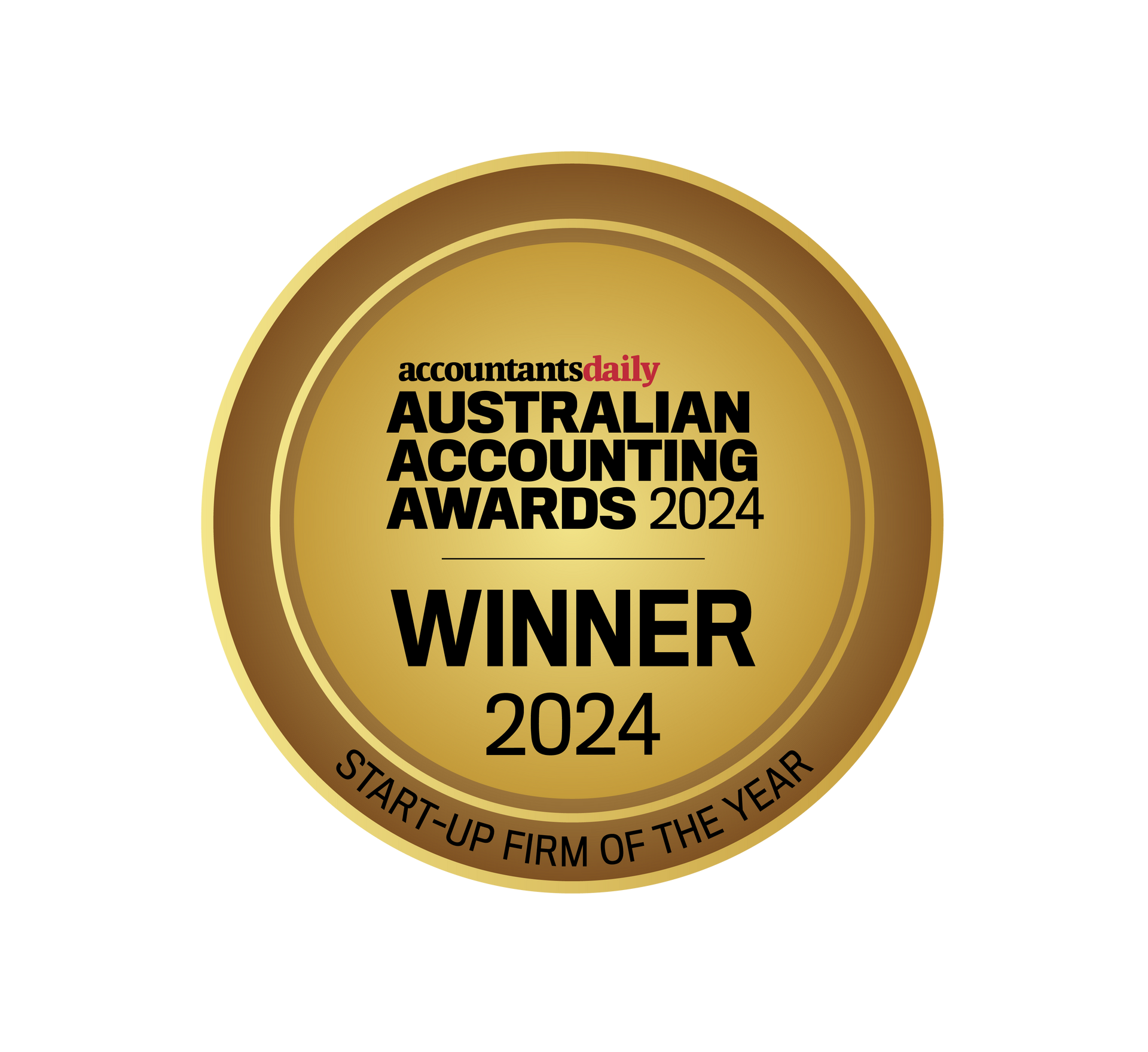




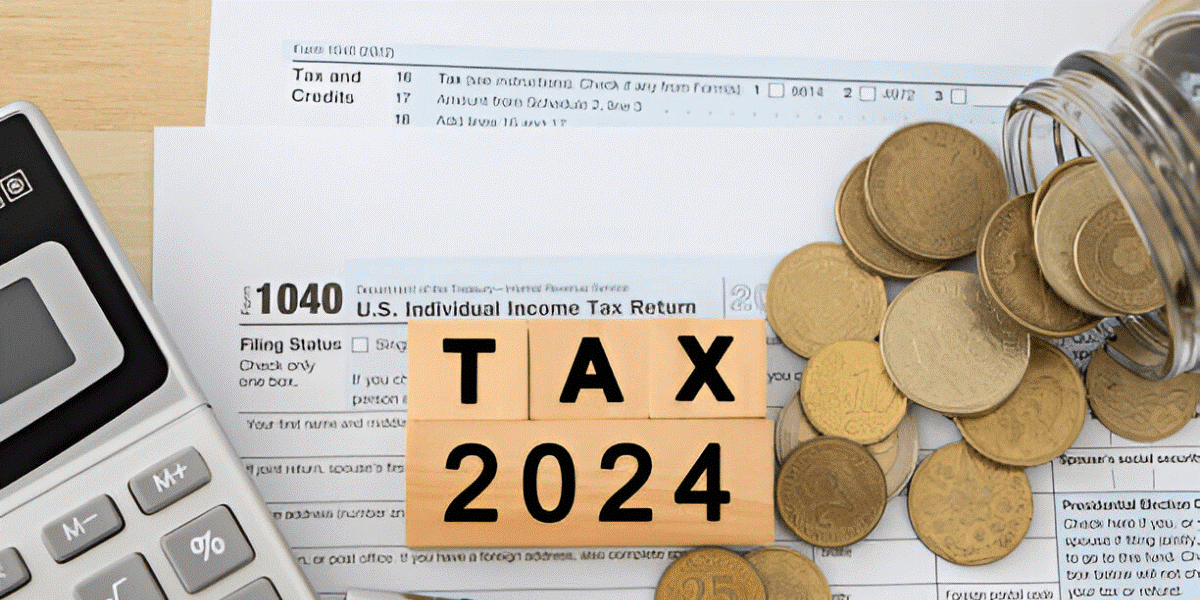
At Tax App, we offer Sydney Local, Online Accounting and Tax Services for individuals and small businesses in our community. Our technology and experienced team provide efficient and personalised solutions to streamline financial management. Trust us to be your partner in success.
Chartered Accountants
Liability limited by a scheme approved under Professional Standards Legislation
All Rights Reserved | Tax App Pty Ltd
Useful Links
Contact Us
Disclaimer: The content of this website is intended to be of a general nature and should not be construed as tax or any other form of advice. We do not guarantee the accuracy or completeness of the information provided in this website. It is imperative that you consult with a qualified professional, such as a certified accountant at Tax App, before taking any action based on the advice or information contained herein. Your specific financial and tax situation may require personalised guidance, and a professional consultation is recommended to ensure compliance with applicable laws and regulations.







